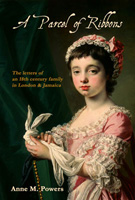Jan Steen (1625/1626–1679) via Wikimedia Commons
Much has been written about the failure of Jamaica to establish a self-sufficient and expanding white colony during the eighteenth century by comparison with the success of the rest of the North American colonies. The appalling death rates from yellow fever, malaria, smallpox and other diseases meant that it was difficult for those young men (and it was mainly men) who arrived seeking to make their fortunes to get a permanent toe hold. Even if they survived long enough to marry, and there were too few white women available for them all, their children also died in great numbers.
However there is another reason why those colonist families that did begin to become established did not remain on the island, which has perhaps received less attention than it deserves. Jamaica failed to establish a really good education system and did not found a university.
This meant that the colonists sent their children back home not just for their health, but to be educated, and once there, experiencing the wider world of eighteenth century Europe, and with the apparently limitless resources provided by the parental plantations at their disposal, they lacked the incentive to return to Jamaica. Many preferred to buy their way into the landed upper middle classes, build grand houses, and participate in Jamaican interests at a distance through the West India lobby or involvement in the building of the West India Docks.
Elsewhere in North America Harvard University was begun in 1636, William and Mary College in 1693 and Yale University in 1701, but there was no parallel development in Jamaica.
There were some early attempts to establish schooling on the island. In 1695 An Act for erecting and establishing a free-school in the Parish of St Andrew was passed, along with other Acts relating to island defence. Subsequent Acts of the Assembly were more concerned with ensuring the rights of minors, defending the island, building roads and bridges, and trying to encourage further white migration than with educating those who were already there. The incentive to provide schools for their own children was also reduced among families for whom the employment of a private tutor (if you could persuade one to come) was the norm.
When William May arrived in Jamaica as a young clergyman, he wrote home to his bishop in far from flattering terms about the early colonists, and in the case of Jonathan Gale and his son Colonel Gale he marked them both as ‘illiterate’, as he said was the father of John and Samuel Moore. There were some Jamaican schoolmasters mentioned by William May – the fathers of both Colonel Peak and Colonel Sadler were said by May to have been teachers, but their sons preferred to make money from their plantations rather than seek an academic career.
You can find the full text of May’s letter in Caribbeana – he clearly had a very poor opinion of his parishioners! But many of the very early settlers probably had little use for more than basic literacy, being concerned to carve out their estates from virgin territory. On the other hand the merchants who imported the goods they needed and who traded their produce for them had to be well enough educated to keep good records, as did the attorneys who managed their legal affairs. But like so much of their food, tools and luxury goods these skills were generally imported by the settlers rather than being home grown.
On the 3rd of February, 1730, Peter Beckford, another man of whom William May held a low opinion, and who died five years later worth over £300,000, gave £2000 “for a school and poor housekeepers”. However, there appears to have been no real concerted effort to establish good quality schools during the eighteenth century and it became the norm for children, both boys and girls, to be sent to England for their education. The two Moore brothers mentioned above matriculated at Wadham College Oxford in 1700 and 1702, with Samuel going on to register at the Inner Temple.
Both John and Samuel Moore returned to Jamaica after their time at university, but as the century progressed it became more and more common for those who had made their fortunes in Jamaica to relocate to Britain and seek a place in British society. If Jamaica had had good schools and a centre of learning sufficient to attract students from elsewhere in the Caribbean, it is possible more young men would have remained on the island.


